TODAY: Stormy start. Intervals of sun, very sticky. Few severe storms pop later, especially south/east of the metro. Dew point: 74. Winds: S 10-15+ High: 88
WEDNESDAY NIGHT: More T-storms, locally heavy rain. Low: 70
THURSDAY: Sunnier and drier statewide, plenty hot. Dew point: 67. High: 91
FRIDAY: Hot sun, stray late-day storm? Low: 71. High: near 90
SATURDAY: Hot, steamy sun, mostly PM storms. Dew point: 73. Low: 72. High: 93
SUNDAY: Lot's of sun, PM T-shower. Dew point: 72. Low: 74. High: 91
MONDAY: Sunny, no funky blobs on Doppler. Dry. Low: 72. HIgh: near 90
TUESDAY: More T-storms (best chance north). Low: 70. High: 89
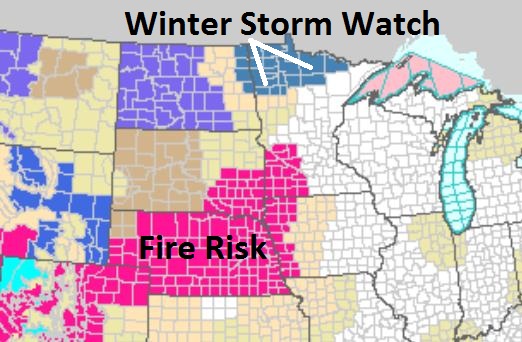
Severe Storm Watch Until 6 am Wednesday. SPC has issued a watch for much of central and southern MN until 6 am today - it does include the immediate Twin Cities metro area.
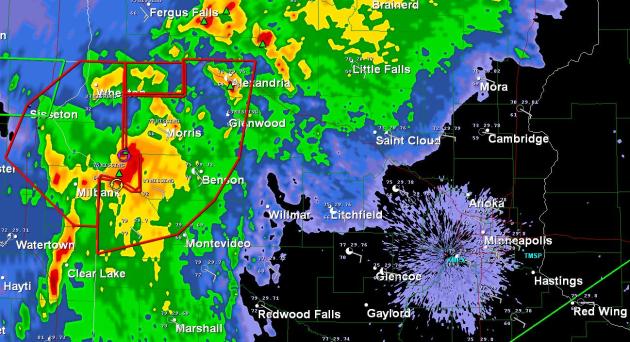
Severe Straight-Line Winds? Doppler radar at 11 pm Tuesday night showed a line of strong/severe storms pushing across western Minnesota - some evidence of 70 mph+ straight-line winds west of Morris and Benson. These storms will sweep across the metro area overnight - we may be waking up to some big puddles Wednesday morning.
In Today's Weather Blog:
* Tropical Storm "Don" may be about to form in the Gulf of Mexico.
* "Jekyll & Hyde" July in Chicago.
* Today should be the 26th day/row above 100 in Dallas/Ft. Worth.
* Unseasonably cool weather continues across the Pacific Northwest.
* A silver lining to extreme weather in the west?
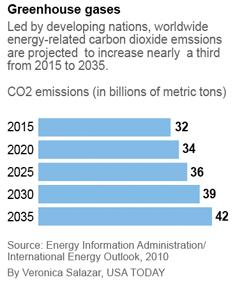
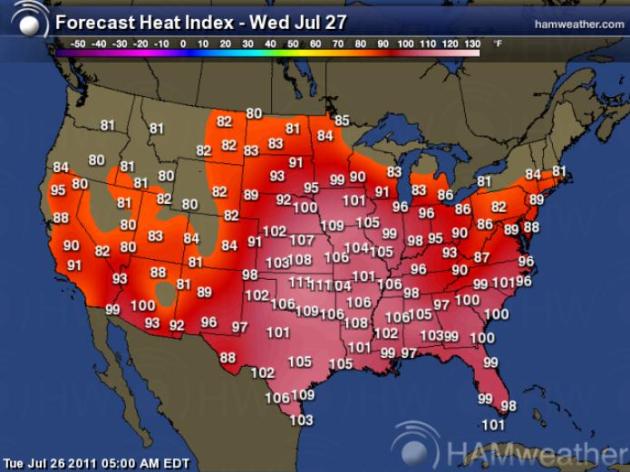
Much Of America Continues To Bake. 100 degree plus heat indices are predicted from southern Minnesota southward to Texas, eastward to the Carolinas again today. Relatively comfortable weather prevails from New England to the Great Lakes, and across the Pacific Northwest.
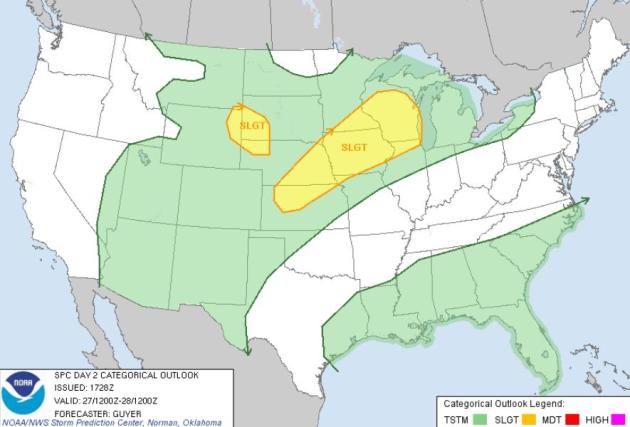
Wednesday Severe Threat. SPC has a slight risk of severe storms from the Twin Cities to Milwaukee, Chicago, Des Moines and Omaha, a smaller risk area from Cheyenne, Wyoming into the Black Hills of South Dakota.
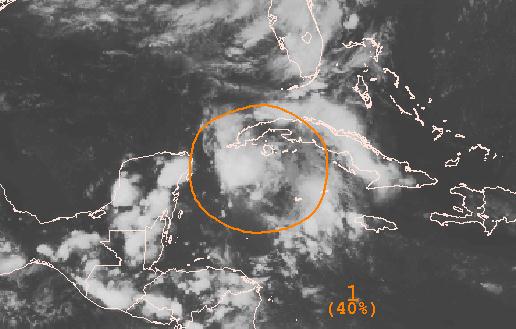
Tropical Storm "Don"? Early Tuesday the probability of this tropical wave over Cuba becoming a tropical storm was listed as "0%" by NHC. As of late evening Tuesday the probability has risen to 40% Water temperatures in the Gulf of Mexico are in the mid 80s, warm enough for further intensification. The question: is there too much wind shear over the Gulf (increasing wind speed with altitude) that might shred the storm circulation? Stay tuned. Here's the latest from NHC:
SHOWERS AND THUNDERSTORMS ASSOCIATED WITH A TROPICAL WAVE OVER THE NORTHWESTERN CARIBBEAN SEA JUST TO THE SOUTH OF EXTREME WESTERN CUBA CONTINUE TO SHOW SIGNS OF ORGANIZATION. HOWEVER...SURFACE OBSERVATIONS INDICATE THAT THE SYSTEM DOES NOT HAVE A CLOSED CIRCULATION AT THIS TIME. SLOW DEVELOPMENT OF THIS SYSTEM IS POSSIBLE OVER THE NEXT COUPLE OF DAYS AS IT MOVES TOWARD THE WEST-NORTHWEST NEAR 15 MPH. THIS SYSTEM HAS A MEDIUM CHANCE...40 PERCENT...OF BECOMING A TROPICAL CYCLONE DURING THE NEXT 48 HOURS.
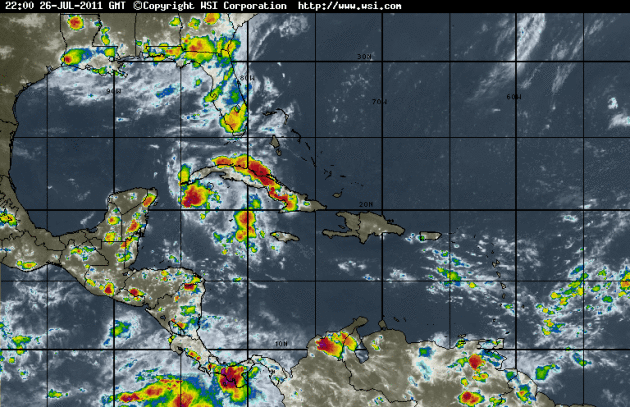
Watching The Tropics. This enhanced IR satellite loop (courtesy of WSI) shows a rather disorganized tropical depression centered south/west of Cuba (which is disrupting the storm's inflow). Once the circulation moves out over the open waters of the Gulf further strengthening is likely.
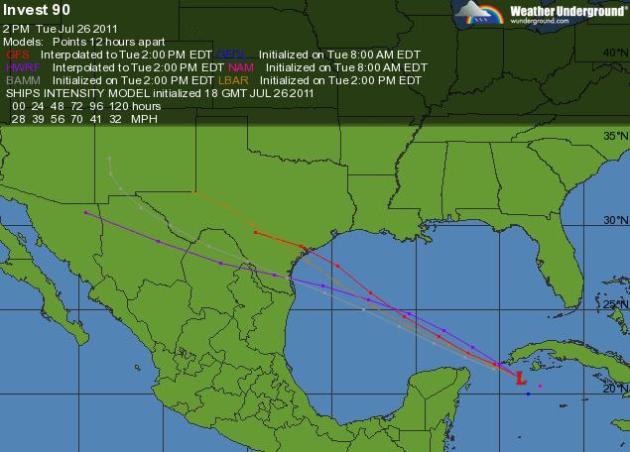
"Don's" Potential Track. O.K. It's not a tropical storm yet, not even close, but I do expect the disturbance to intensify into a tropical storm within the next 36 hours. Right now NHC models are pushing the storm across the Gulf of Mexico, into Texas (which could sure use a tropical cyclone to help relieve the 3rd worst drought in state history - over $4 billion in agricultural damage so far, and rising). But Tuesday afternoon I saw a different track from Baron Service's 15 km "BAMS" model, which takes this storm into the eastern Gulf of Mexico, on a track closer to Mobile or New Orleans. It's too early to say with any certainty, but people living along the Gulf should stay alert. (map courtesy of Weather Underground).
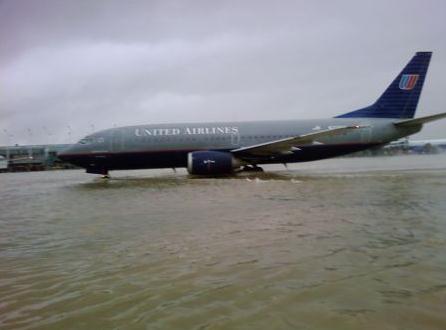
- Three days later, by Sunday afternoon, this July ranked as the second wettest on record for Chicago…with a week still left to go. What a difference three (wet) days make.
- Total rainfall through the 24th now is 9.04 inches while the record for the month is 9.56 inches (set in July 1889).
- So in a three day period we moved from potentially the third driest July to the second wettest!
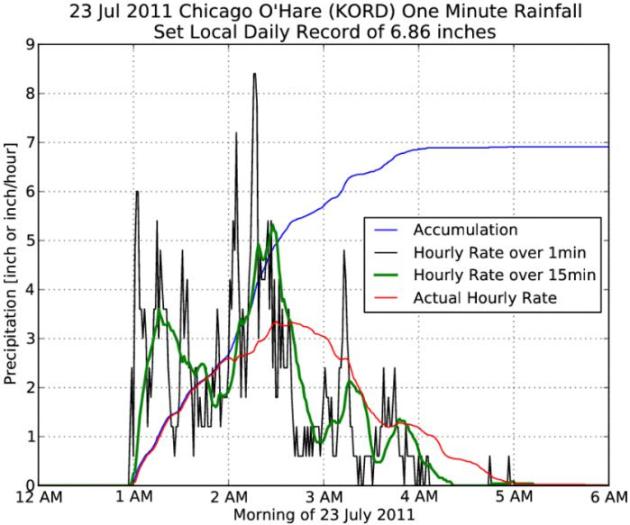
A brief summary of facts regarding the record rainfall measured on Saturday, July 23:
- The all-time Chicago daily record rainfall of 6.86 inches was set during the pre-dawn hours this past Saturday, July 23. Never had Chicago’s official climate station (presently O'Hare Airport) measured more rainfall in a single calendar day.
- The previous daily record for Chicago was 6.64 inches on September 13, 2008. The previous record for July 23 itself was set just one year ago…with a total of 2.79 inches on 7/23/2010.
- A total of 8.20 inches of rain fell during the 24-hour period from 7:00 AM Friday to 7:00 AM Saturday. This fell shy of the all-time 24-hour record rainfall set on August 13-14, 1987.
- As shown by the blue line in the graph below, this record setting rainfall actually took place over just about a 3-hour period!
- If Chicago had not received a single drop of rain this month outside that 3-hour window early Saturday, this would still rank as one of Chicago's top ten wettest Julys on record (8th overall).
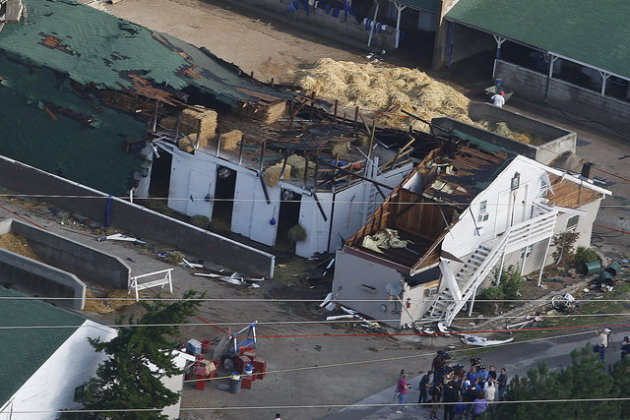
Minot Flood Victims To Get Little Help. $30,000 for a (gutted) $325,000 home? Must be the new math. The Winnipeg Free Press has the story: "MINOT, N.D. -- How will state and federal governments look after the citizens of Minot, whose properties were destroyed in last month's tsunami-like flood? The early signs aren't good for Joe Holzer and nearly 4,200 other homeowners who had up to three metres of water in their homes. Holzer had a $325,000 house. There's about $70,000 left on his mortgage. Water filled his house to 1.8 metres high on the main floor. He's already gutted his house to prevent mould. The Federal Emergency Management Agency (FEMA) has awarded him its maximum compensation payment: US$30,000. It's already down to $27,000 after deductions for emergency accommodations and other costs he's incurred. By comparison, victims of flooding in Manitoba this year are eligible for compensation up to a maximum of C$240,000 under disaster financial assistance, a government spokesman said. The federal government is on the hook for 90 per cent of the payments. The province is estimating Manitoba's cost for both fighting the flood and repairing damages to be $550 million. "I'm destroyed," said Holzer, 49, an electrician. "I've worked for this place my whole damn life. Now it's shot."

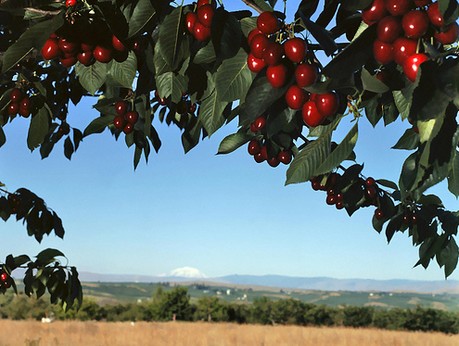
- Farmers in parts of Oregon and Washington are struggling with cold, wet weather that's slowing the growth of their crops. Cherries aren't ripe. The region's world-class grass seed won't dry out.
- One Oregon county is seeking a disaster declaration after losing as much as 80 percent of its peaches and cranberries.
- There's time for the situation to improve, but farmers say they desperately need some warmth and a break from above-normal rainfall.
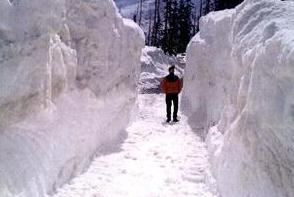
- This year's run of extreme weather conditions, which has brought everything from a heat wave to flooding along the Mississippi River to drought and wildfire in Arizona and record snow in the Midwest and Northeast, also has produced some positive results.
- Rain and snow has boosted water supplies for farms and cities and ended the drought in California. The same conditions have improved habitat for desert wildlife and reduced wildfire risk in many areas out West.
- More than 60 feet of snow fell in the Sierra Nevada over the winter and spring, second only to the winter of 1950-51. That snow brought enough water to prompt Gov. Jerry Brown in late May to lift a statewide drought declaration ordered in 2008.
- All of the states west of the Rockies are drought-free, according to the most recent U.S. Drought Monitor.
- At the Stillwater National Wildlife Refuge in Nevada, water draining from a record-setting mountain snowpack has transformed this desert oasis, expanding marshes now teeming with birds and wildlife and creating the largest wetlands in the past five years. More than 20,000 acres are flooded, providing habitats for waterfowl and other wildlife.
- The fire risk to forests across much of the Northern Rockies, Pacific Northwest and Northern California has been substantially reduced by snowpack and a cooler- than-average spring.
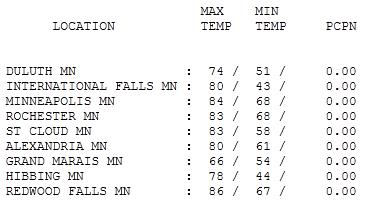
Respectable Tuesday. Under bright sunshine much of the day (with a lower dew point than was predicted - mostly 50s, but 70s over far southwestern MN) temperatures reached a comfortable 74 at Duluth, 78 Hibbing, 83 at St. Cloud and 84 in the Twin Cities. Nice to be "average" again.
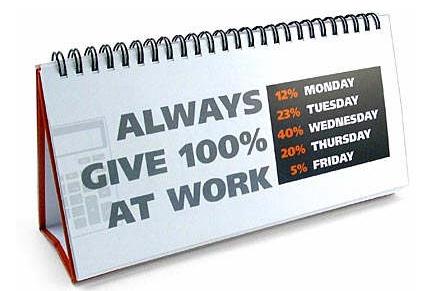
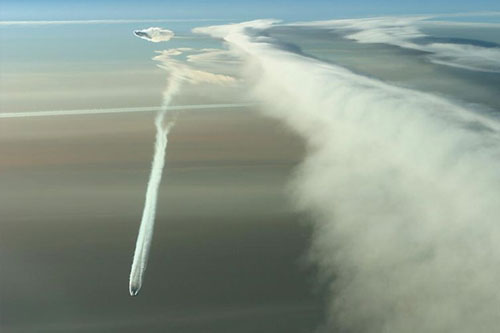
Tinkering With Nature
"Paul, can't you DO something about this weather?" Long pause. "Yes I can - but I choose not to. It would set a bad precedent." You may be happy to hear that weather modification on a grand scale (in our lifetime) is pure science fiction. It's not going to happen anytime soon. Even if we could effectively seed clouds to end drought or steer a hurricane away from the coast, the liability issues would be overwhelming. Who pays when the experiment goes bad? That, and you'll never keep farmers and boaters happy (simultaneously).
We are nudging the weather: cities can be 5-10 degrees warmer than outlying suburbs, jet contrails can spread out into cirrus clouds, keeping daytime highs 2-5 degrees cooler and nighttime lows a few degrees warmer. "Sweaty corn" may add a few degrees to our dew point today: mid 70s will make it feel tropical out there. A few strong/severe storms are likely; stay tuned for watches & warnings. We dry out Thursday & much of Friday; plenty warm for the lake or pool. 5 days in a row above 90 are expected, from Thursday through Monday of next week. Not as oppressively steamy as last week, but a subtle (yet blunt) reminder that the Dog Days of summer are here!

SmartPlanet: What concerns you most about energy and climate change?
"AT: As a reporter, I think climate change is still a very confusing subject for the public to comprehend. I can’t tell you the number of times I have heard the question “do you believe in climate change?” Climate change is not a religion. Climate change is science. There is plenty of evidence that the earth is warming, that the chemistry of the oceans is changing, that growing zones in our country are creeping northward. The question is not “do you believe in climate change?” but “what, if anything, are we going to do about it?” On energy, we talk a lot about “energy independence” but we are not doing much to get there. We import about half of the oil we use. There is talk about increasing domestic oil production but there appears to be a math problem."

Drought Costs Texas Billions, Consumers Face Higher Beef Prices. KLTV-TV has the details on a growing natural disaster in Texas, one that could have us paying more for beef: "The impact of this lingering drought will continue into the new year as thousands of Texas cattle raisers have sold out. They just can't afford to feed and water their herds. The Texas Cooperative Extension Service says between cattle and crops, this drought has cost texas $4.1 billion just to this date. The costliest drought before? It was 1998, and that was $2.1 billion for the whole year. "It's real hard," says cattle raiser Steve Carpenter. "We've got some $3,000 to $5,000 cows we're taking $700 for." For Carpenter and countless other Texas cattle ranchers, this year has been the breaking point. "We could stand 20 inches [of rain.] It could sit here and rain for a week and it wouldn't hurt a thing." But it wouldn't help in some respects at this point. His 100 head Charolais herd is down to 60. The cattle had to go as the hay this year just won't grow. "Our fields, which usually make 160 to 200 rolls [of hay] made 67 rolls. It's just not there," he says. "We need something in the neighborhood of 100,000 gallons an acre to get that crop," says Extension agent Brian Triplett. He says you can't truck in enough water. And even now, if the rain began, production would be limited as the weather cools."
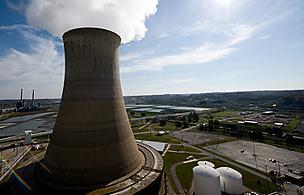
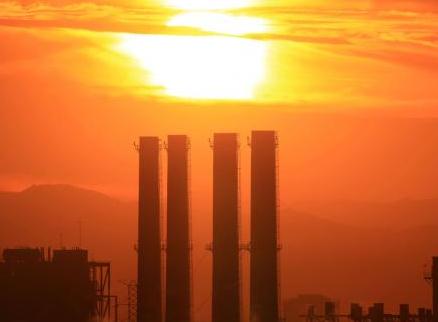

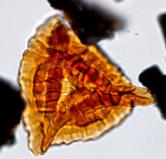
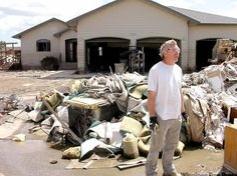

No comments:
Post a Comment